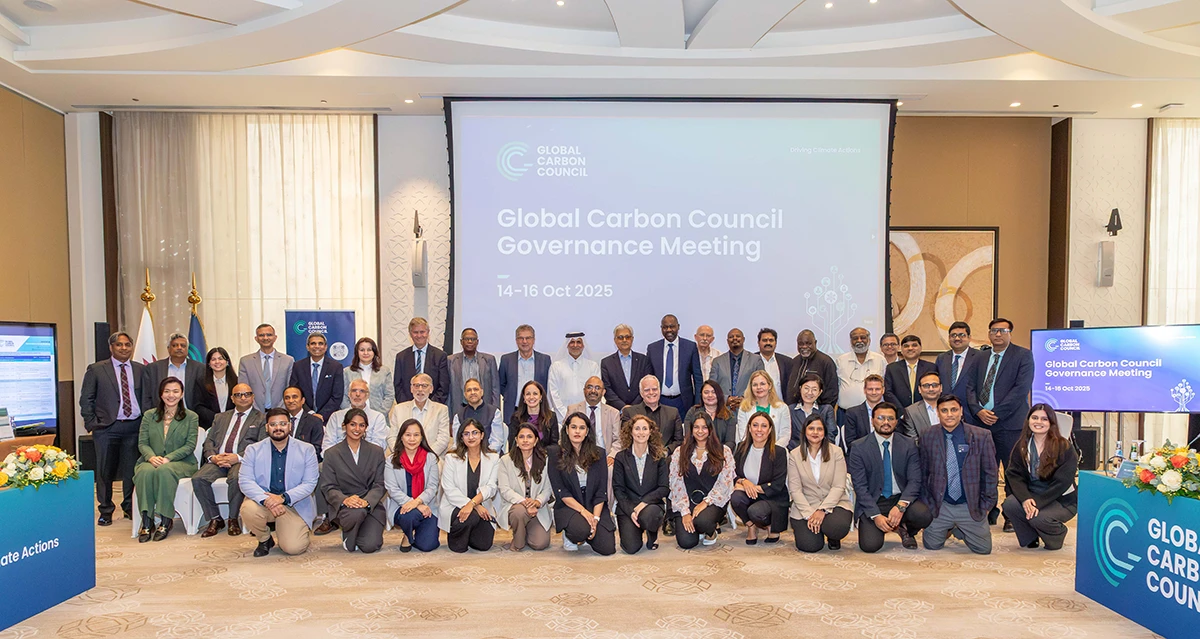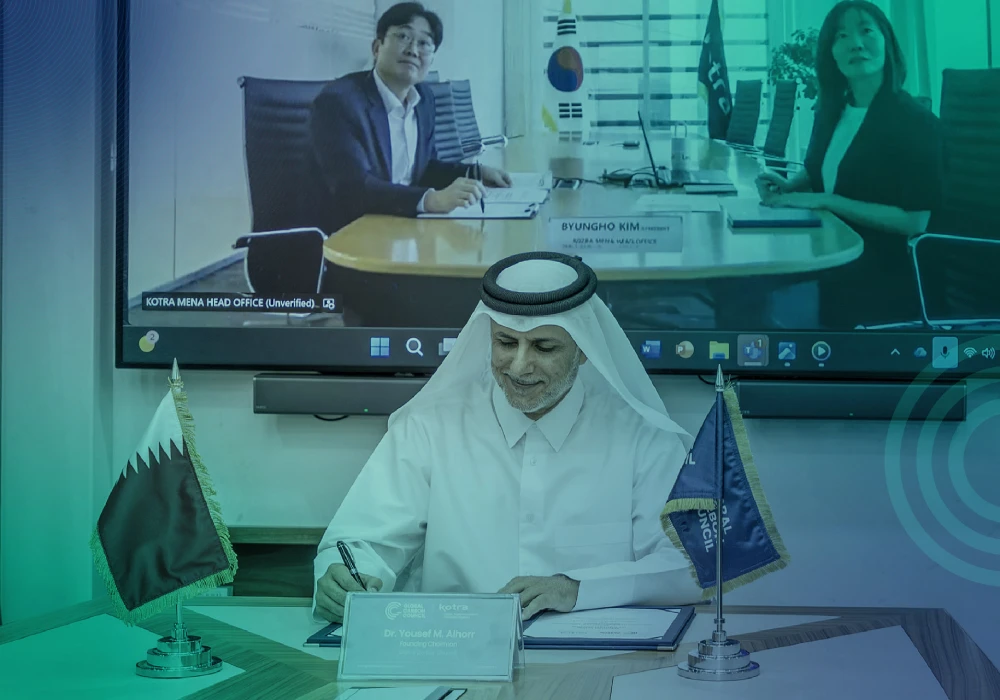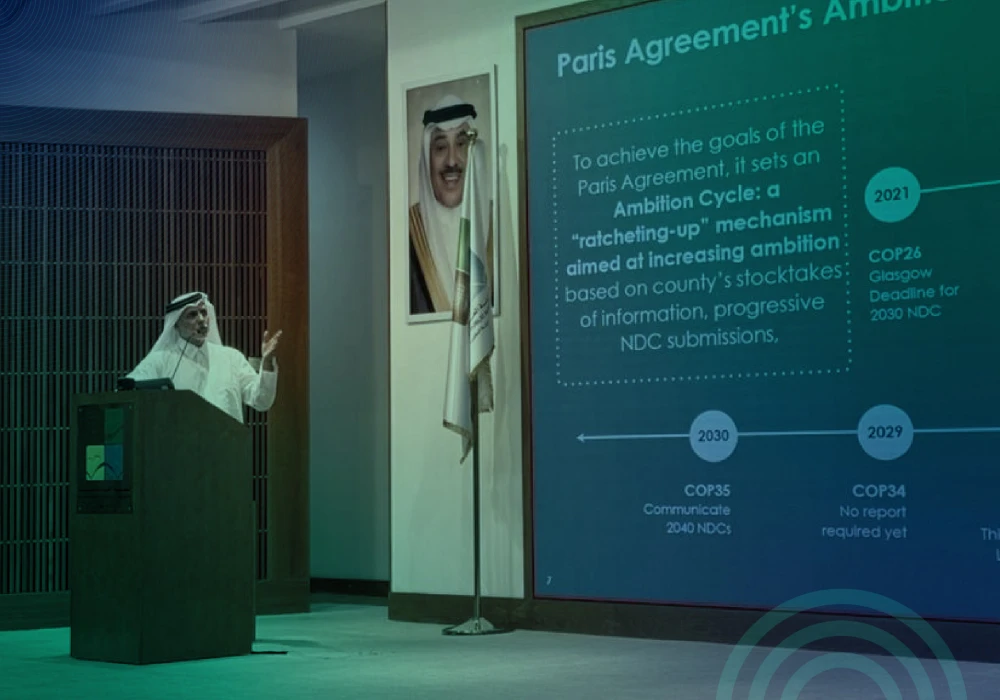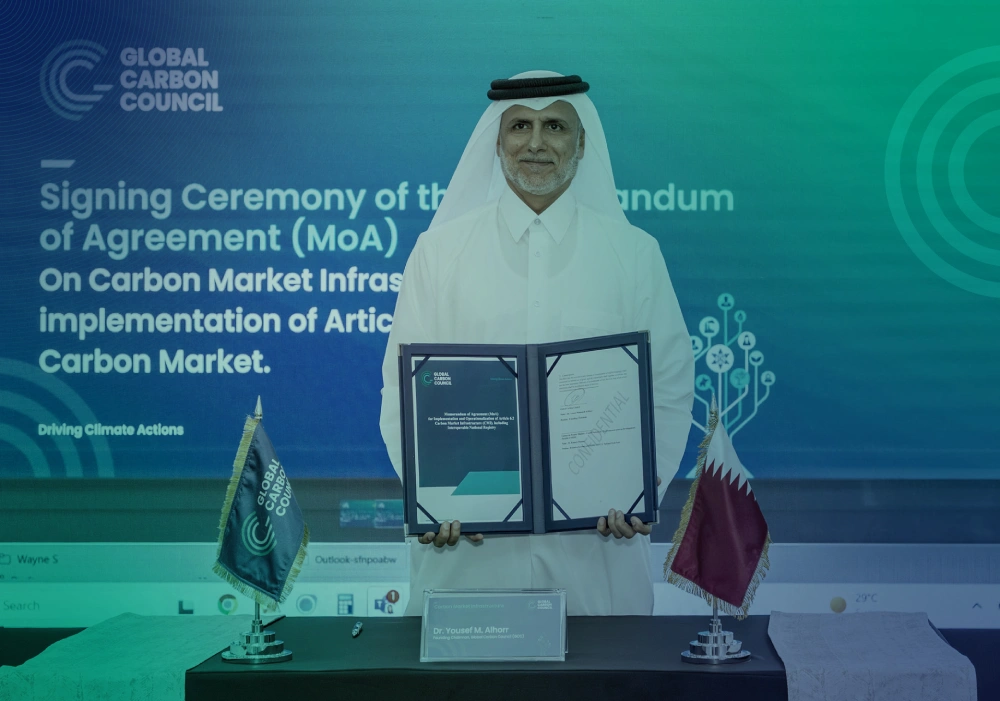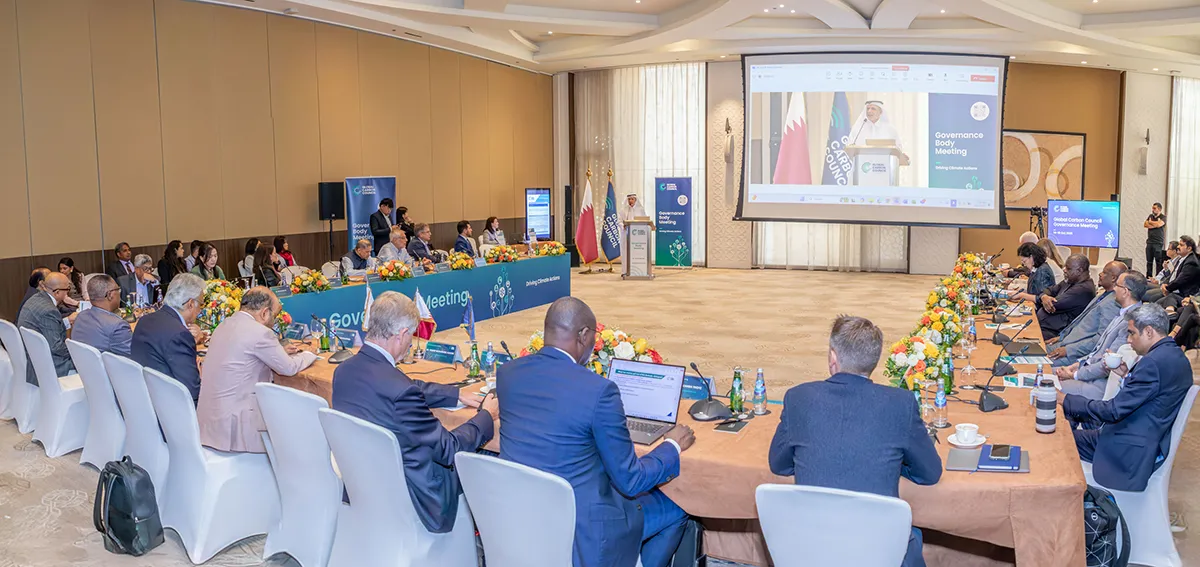
The Global Carbon Council (GCC) convened its 2025 Governance Body Meeting at Alwadi Hotel Doha from 14th to 16th October bringing together members of its Advisory Board, Steering Committee, and Regulatory Committee to review achievements, exchange insights, and chart GCC’s strategic direction for 2025–26.
The three-day program of meetings provided a platform for governing bodies to discuss emerging trends, regulatory updates, and strategic priorities in the voluntary carbon market. Participants included leading experts in climate policy, carbon markets, GHG methodologies, project validation and verification, and sustainability.
Opening the 2025 Governance Body meeting, Dr. Yousef Alhorr, Founding Chairman of GCC, welcomed participants back to Doha and reflected on the Council’s growth and global impact. He highlighted Carbon Market Infrastructure (CMI) solution for countries’ implementation of the Integrated and Interoperable Article 6.2 Carbon Market Infrastructure to support transparent, digital carbon market operations. He also noted GCC’s unique the launch of the Carbon Capture and Storage (CCS) and Nature-based Solutions (NbS) programs and GCC’s development of a carbon standard for clean energy access under the World Bank. He mentioned that 180 projects have been registered under the Program, and GCC has issued over 12 million carbon credits.
Dr. Alhorr also highlighted progress toward ICVCM accreditation, recent MoA signings with countries including Indonesia, Niger, Mali, and Mauritania, as well as an MoU signed with the Eastern Africa Alliance on Carbon Markets and Climate Finance (EAA). He outlined GCC’s plans for global expansion, including a satellite office in Hong Kong and a future presence in Latin America, and concluded by thanking the governing bodies and operations team for their continuous efforts.
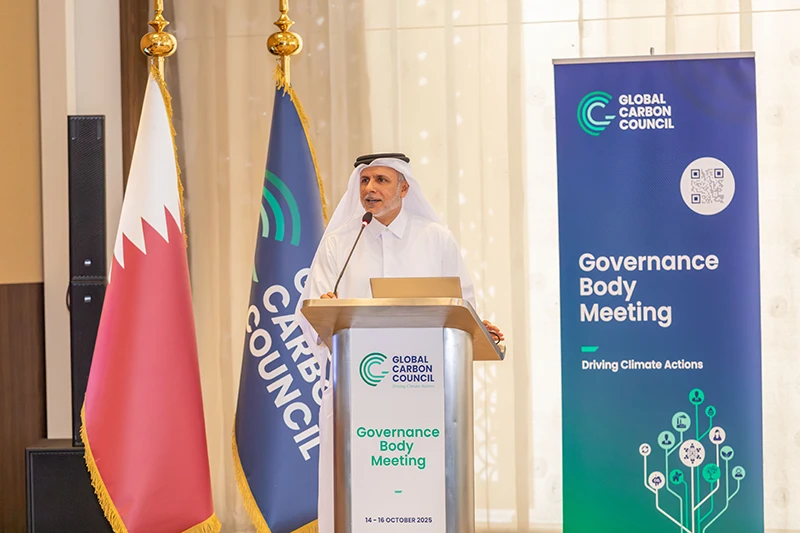
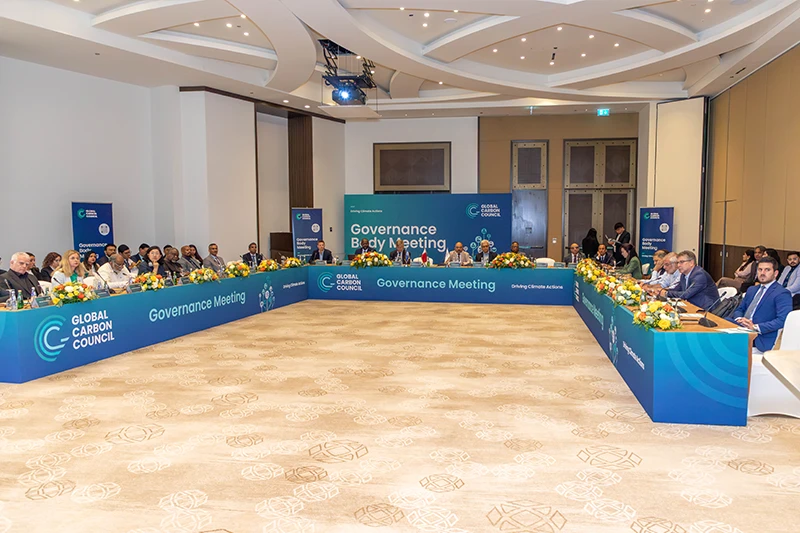
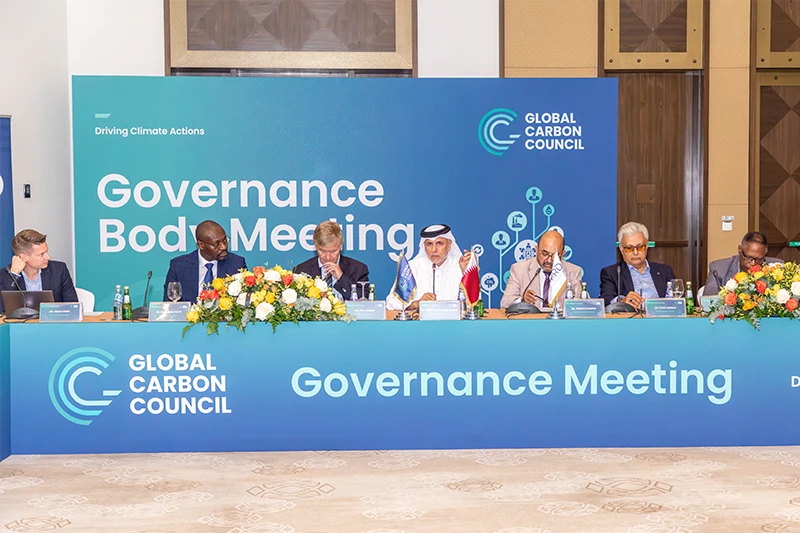
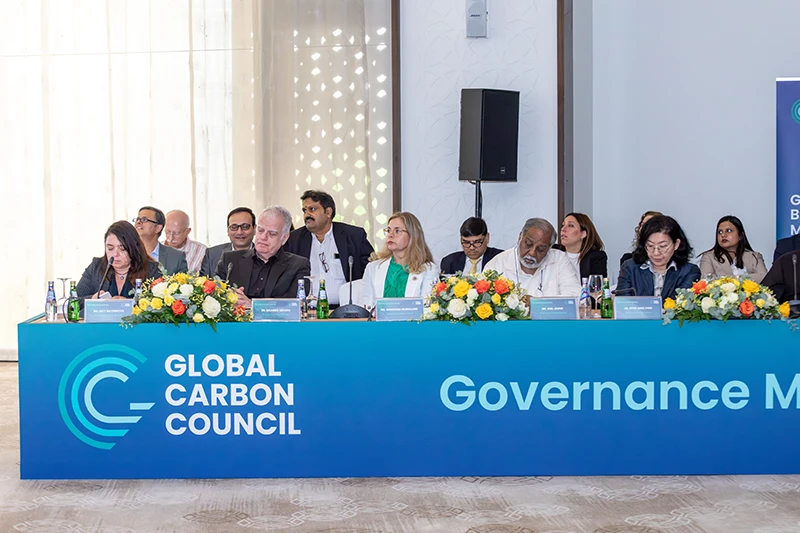
Governance Body: Strategic Oversight, Program Review, Guidance
The Governance Body Meeting focused on reviewing GCC milestones, new initiatives, and operational achievements. Sessions included Program 2.0 updates, transition from GCC 1.0, digital MRV systems, and alignment with Article 6.2 of the Paris Agreement. GCC’s unique CMI solution for countries, methodologies development, transaction registry and stakeholder support activities. Senior operations team members presented methodology updates for CCS, NbS), and renewable energy. The discussions also highlighted GCC’s climate finance initiatives, country-level engagement and efforts for Article 6.2 operationalization, and participants experienced live demonstrations of the National Registry and Projects Portal, showcasing GCC’s advanced digital infrastructure for transparent, real-time carbon market operations and supporting global project facilitation.
Steering Committee: Strategic Guidance and Market Positioning
The Steering Committee provided high-level guidance on GCC’s role in market demand creation, project engagement, and operationalizing Article 6. 2 Sessions explored collaboration with host countries, investors, and project developers, alongside strategies for Scope 3 crediting and corporate engagement. Discussions emphasized country-level engagement, project facilitation, and climate finance initiatives to strengthen operational outcomes. Recommendations from the Steering Committee will inform GCC’s roadmap for demand stimulation, governance alignment, and innovation.
Regulatory Committee: Standards, Methodologies, and Compliance
The Regulatory Committee focused on technical and procedural aspects of GCC Program 2.0, covering project standards, environmental and social safeguards, verifier approval procedures, and ICVCM eligibility criteria. Members reviewed methods for addressing uncertainty in project activities and aligning GCC methodologies with Article 6.4 requirements. The sessions incorporated discussions on country-level implementation and climate finance support mechanisms, ensuring the Program remains credible, robust, and operationally accessible for stakeholders.
Advancing Integrity and Global Partnerships
Throughout the meetings, participants explored GCC’s enhanced digital infrastructure, including the Projects Portal and Transaction Registry, supporting Article 6.2 operationalization at the national level with GCC’s SMI solutions. The discussions reinforced GCC’s commitment to transparency, collaboration, and technological innovation, highlighting its position as a high-integrity global carbon market leader.
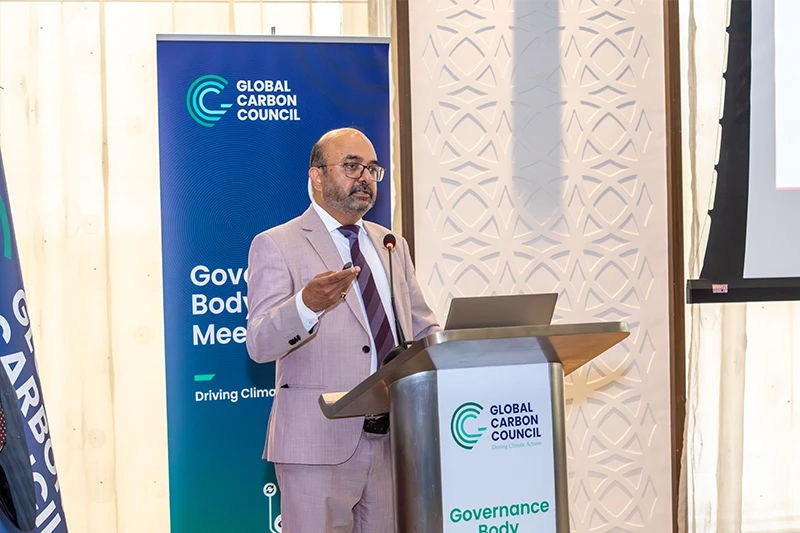
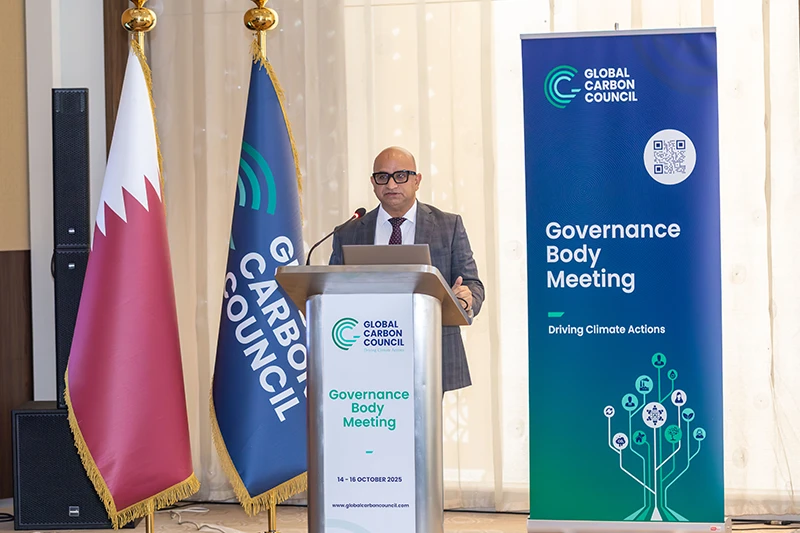
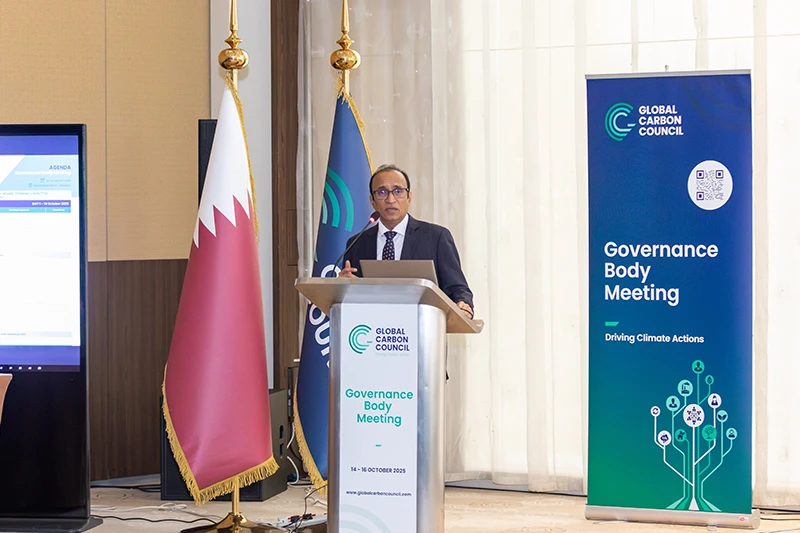
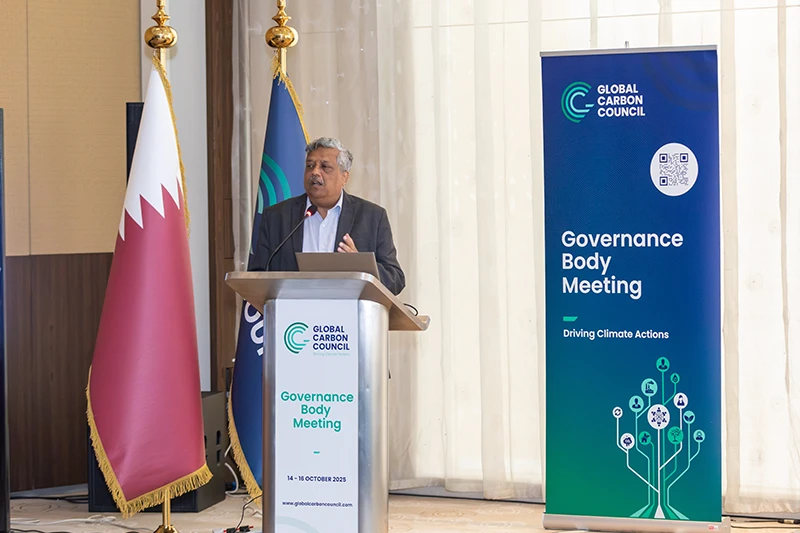
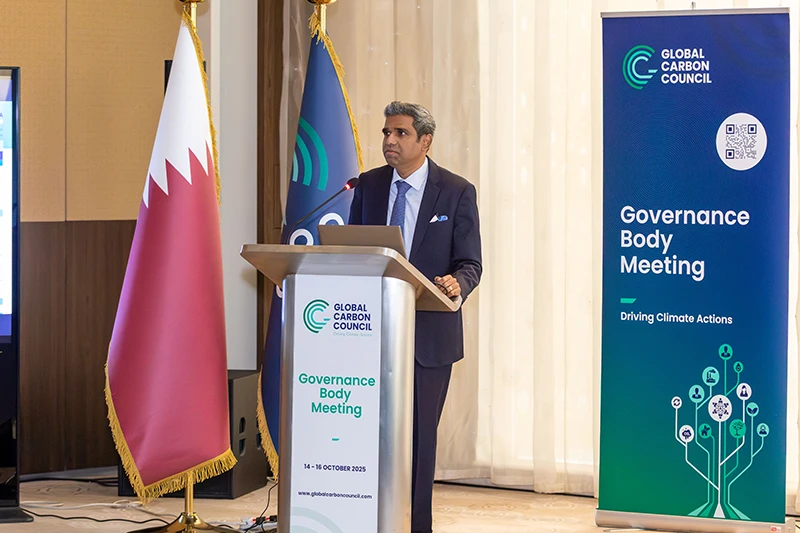
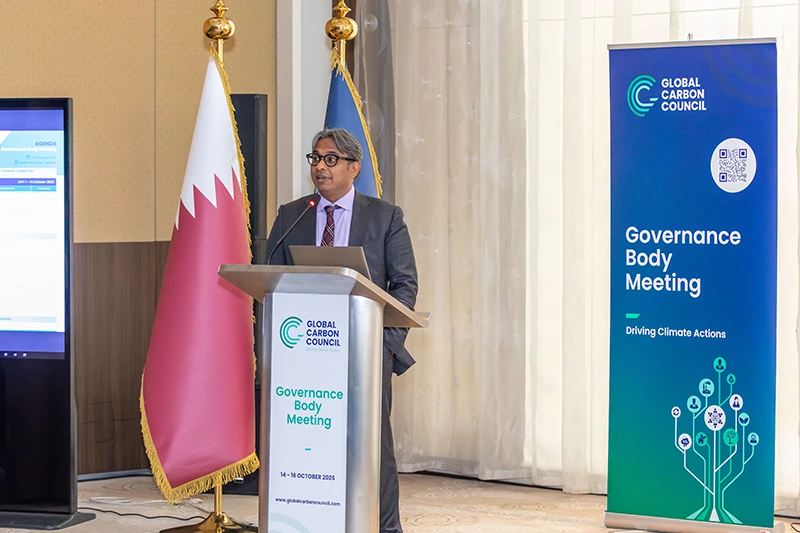
Looking Ahead
As GCC transitions into 2026, its focus remains on strengthening regulatory frameworks, scaling high-integrity climate solutions, and expanding global partnerships to deliver measurable climate impact. The recommendations from these meetings will guide GCC’s strategy and ensure its continued leadership in voluntary carbon markets.
